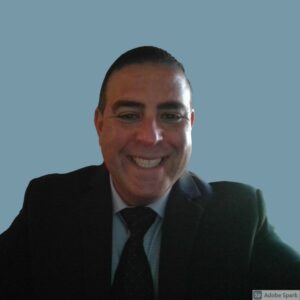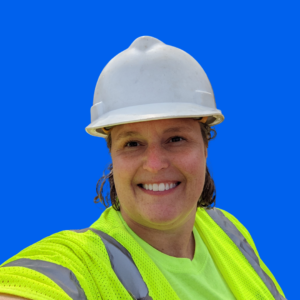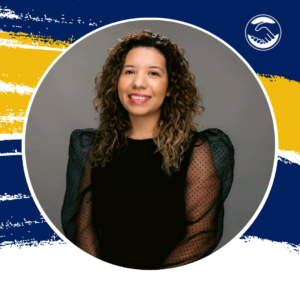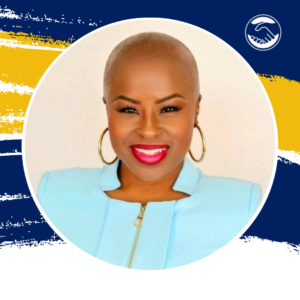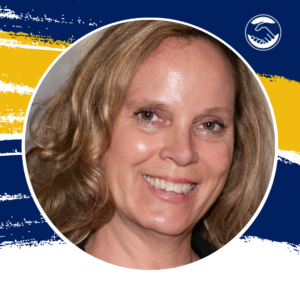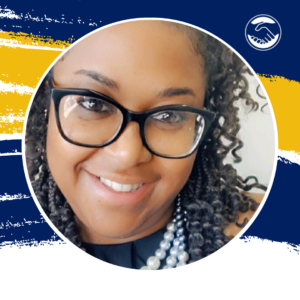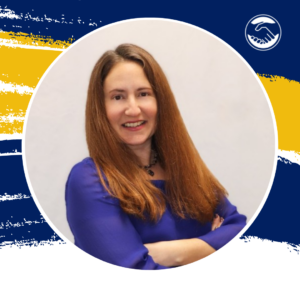Member Spotlight: Michael Vargas
Founder, Atlas Project Support
Company Website:
Michael Vargas is the founder and principal consultant at Atlas Project Support. Atlas provides its clients customized solutions as a certified boutique management consulting firm. Their expertise extends into energy, information systems, and construction management disciplines. We caught up with Mike to discuss his business and how things have gone since he participated in the Founders First Accelerator program.
Tell us about your business, Mike.
My business is called Atlas Project Support. We’re a management consultancy. We’ve been in business for the past 15 years. And any time you have a small boutique sort of consulting business like mine, where it’s business-to-business almost predominantly, we’re always looking for new, innovative ways to work on the business rather than, you know, the continuous, monotony of working in the business as every small business owner can empathize.
So, I reached out to Founders First in an attempt to utilize this emerging platform, this assistance, if you will. And so, you know, in a business like mine, we specialize in going in and doing operational efficiency projects—a lot of energy and sustainability related projects. That’s actually one of the ways I’ve been able to sustain the business—by focusing on these megatrends in our economy, the greening of the economy, and you know, it’s a great opportunity.
Just like everybody else, I was deeply affected by the COVID pandemic. And so subsequently, these past few months, I’ve been refocusing on the business and trying to reestablish our presence in the marketplace.
Can you share with us your inspiration for getting started as a small business?
Certainly, I think back to almost 15 years ago, my wife and I were considering starting a family. And at that time, you know, I was working for other people around 68 hours a week. And my wife suggested to me, hey, you know, I want to be a stay-at-home mother. And she was the one who encouraged me and said to take a chance. The commercial lending market had collapsed around that time. So there were mass layoffs and people were extremely worried about the economy. And even in that environment, my wife had faith that I could sustain our family. She suggested, hey, you know, instead of getting a job, why don’t you start your own business and leverage your existing network and all the good work and all the money you’ve made for other people? So that was sort of the impetus. You know, my wife’s undeterred belief that I could be successful as an entrepreneur.
And that was sort of the onus. And so that’s what allowed me to to delve into reaching back to some of my customers and saying, hey, you know, the economy’s depressed. You laid off these specialists within your organization. Maybe there’s funding for me being able to do that without the overhead expense of being an employee. And so that was sort of the burgeoning idea.
The business, ironically, is named after my favorite business school book, Atlas Shrugged. When I named the company I sort of felt the weight of the world was on my shoulders or certainly the weight of my family and their expectations. So, you know, that’s how we got the name. And it’s been a small boutique firm this whole time.
Since your tenure in the Founders First accelerator program wrapped up, have you seen a lot of changes or growth in the business?
The program was really more of an introduction into access to funding and capital and sort of raising my acumen. So in terms of outputs, my business hasn’t necessarily changed other than I’ve gotten a lot of great advice and a lot of great direction and expanded my network. I’ve also been able to understand the current environment for leveraged money, whereas you know, subsequent to the COVID years, I was more uncertain of, you know, the credit worthiness, what lenders were looking for.
And so being able to have a program that was very structured and focused and narrow in terms of what it was going to deliver. With regards to that aspect, it’s been a huge benefit. You know, this type of interaction with any organization is extremely meaningful to my organization. We’re emerging from the past to the present, quite frankly. We had some significant sustained losses. You know, I’m not necessarily independently wealthy outside of my business. My business has provided everything for my family. So when the business struggled, of course we encountered lots of different hurdles. But, you know, when you have no choice and your kids are depending on you, you have to make it happen.
Any fond memories of the program? Anything that stood out that you would say that you would recommend for another up-and-coming entrepreneur?
Yeah. You know, more on the communication side—the emergence of this, the virtual networking, which is sort of unprecedented, you know, the virtualization of meetings and business transactions quite frankly, has always been around or it’s been around for a long time. But now to diverge from the technical business operations side and get into more of these soft-scale marketing and networking and, you know, transmitting philosophy virtually was something that I got a hold on in the program.
The diversity of participants was also very eye opening. And quite frankly, you know, it sort of gave me input from various different business models on what they were doing and then to assimilate some of that or to emulate some of it has also been a great benefit.
What initially attracted you to the Founders First accelerator program, or how did you hear about us?
Yeah, you know, I can’t recall. I didn’t get a chance to go back through my initial communications with you guys. I think it was something that I saw where there was an opportunity for this program to help me focus on the business and be productive.
I’ve been very faithful and committed to exploring different programs like Founder’s First, because I realized that, you know, my downtime didn’t have to be unproductive. And Founders had this funding available to assist businesses. So it was well worth my time. And, you know, quite frankly, the dividends that it paid haven’t really altered my business. Other than maybe it’s kept it alive. So, you know, for that, I’m very grateful that these entities exist and are still trying to support us.
Do you have any advice for other entrepreneurs out there that want to make their way out into the world and become the next upcoming business?
Yeah, you know, I think that there’s always hope. And learn how to use Excel, you know what I mean? Those are my two bits of wisdom. But seriously, you know, no matter what point you are in in the business, even if your business is somewhat mature, perhaps like mine, there’s always something you can learn. And the marketplace is constantly seeking innovation.
So take a chance. Put yourself out there and give it everything you have so that you don’t have any regrets. Because quite frankly, you know, one thing as an entrepreneur—and I also am an adjunct at a few business colleges in Southern California—the students need to know that failure is not the end of the road. Right? That’s an opportunity to continue to grow and diversify and expand your horizons. So that’s really my advice is, you know, when adversity hits, which it will, remain steadfast in the work, the work you’ve done, and the belief that got you to this point, which takes a lot of courage to, you know, to do your own thing.
And I would encourage everybody to follow that philosophy, to stay strong and keep up their passion.
Interested in an accelerator program at Founders First? Check them out
- Founders First CDC - Small business secrets of navigating capital stack for growth

